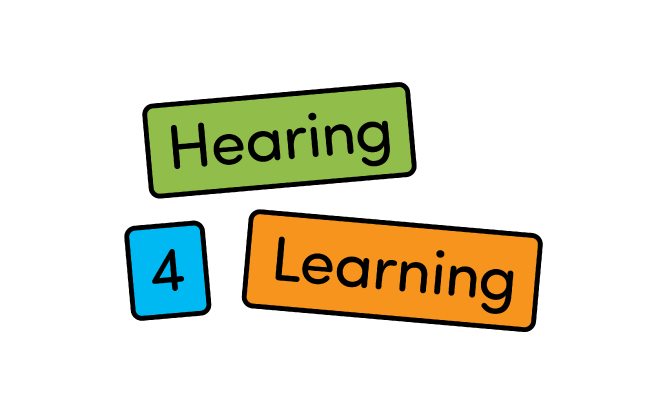Understanding your Listening
Hearing 4 Learning was specifically established to assess Auditory Processing Disorders (APD) in children aged 7 years and above. Our clinicians have over 20 years experience in Paediatric Audiology with a special interest in Educational Audiology. We take a holistic approach with a focus on working with children along with parents and teachers to ensure an optimal listening environment for the child’s learning.
Our Specialists
Jackie Niemann and Rosalie Machlin are Paediatric audiologists with more than 20 years experience working in both Public and Private health sectors on the Peninsula and Metropolitan Melbourne. They have a special interest in assisting children in an educational setting which has resulted in the establishment of Hearing 4 Learning. The focus is on Auditory Processing and educational Audiology using a holistic approach with collaboration with other Specialists on the Peninsula. They are members of Audiology Australia and adhere to their code of ethics.
What is APD?
Auditory Processing Disorder is defined as a hearing deficit where the brain has difficulty understanding speech and other sounds in the environment. Children with APD most commonly report difficulty listening in noisy environments, however, it is more often learning delays or difficulties in the classroom that will trigger a referral for APD assessment.
What to expect when referred.
If children are referred for an APD assessment, a comprehensive hearing assessment including pure tone audiometry, tympanometry and speech discrimination in quiet are performed to ensure normal hearing and healthy middle ears. The APD assessment then involves various tests to check the child’s ability to listen to information presented simultaneously to both ears, their ability to hear in background noise and their ability to detect subtle differences in sound.
Using the information from the APD assessment and feedback from the child’s teachers, parents and other specialists, a written report will be supplied with recommendations for management and/or intervention as appropriate.
We accept all referrals for APD assessment; however, a medical referral will also be required to enable Medicare rebate for the hearing assessment.
If you have any queries or would like further information, please feel free to contact us at info@hearing4learning.com.au.
Parent Information
Thank you for your enquiry regarding Auditory Processing (AP) Assessment for your child. An Auditory Processing assessment is usually requested when there are concerns regarding a child’s learning progress at school. There may be difficulties with reading, spelling or listening, particularly in background noise. Your child may have been referred by another specialist such as a speech therapist to investigate reasons for slower than expected speech development.
-
The AP test is looking at various skills required to enable listening in background noise, determining their ability to effectively hear in the classroom.
The assessment takes part across 2 sessions. The initial assessment involves a full diagnostic hearing test where the hearing acuity, middle ear function test and speech discrimination in quiet is assessed. This will ensure adequate hearing in both ears sufficient for the AP testing. An auditory memory screen will be completed to ensure the child has adequate memory required for the assessments.
The second assessment is the AP assessment. There are several tests completed in this session, each examining different processing abilities including spatial processing, temporal processing and dichotic listening. They are quite complex tests which is one of the reasons why they are not recommended for children under 7 years of age.
-
There are some questionnaires we will ask to be completed prior to the assessment. These are for parent and teacher opinion on the child’s listening behaviours. The information from these questionnaires can assist with addressing the main concerns regarding their learning environment.
Please bring along any relevant reports from any previous assessments including psychologists, speech pathologists or paediatricians. They can help us to interpret the results and work together with these specialists to develop the best management plan for your child more accurately.
Please ensure your child is healthy and has an early night prior to the assessment.
-
On both testing days the child will come into the test booth on their own with the Audiologist with their parent/carer waiting outside the room or in the waiting area at the clinic. The Audiologist will also want to discuss in further detail the background history of your child. Please advise if you would like this to take place without your child in the room as we appreciate some children can be sensitive to the information being discussed.
There are 2 sessions which will take approximately 1 hour each. The child will be required to wear headphones at both sessions with mostly verbal responses to different tasks. This could be repeating words, numbers or sentences. Please advise the Audiologist if any of these tasks could present a challenge to your child.
-
The Audiologist may give you feedback about the assessment straight after the second session. In most cases, however, detailed interpretation is required, and this can take some time. A full report and management plan will be provided within 2 weeks of your 2nd assessment date. If a report is required more urgently, please advise your Audiologist and we will endeavour to assist with your request.
The management plan could involve classroom listening strategies, specific auditory training, or assistive listening devices. There may also be referral recommendations to various other specialists.
Please feel free to contact your Audiologist with any concerns or queries following delivery of your report.



